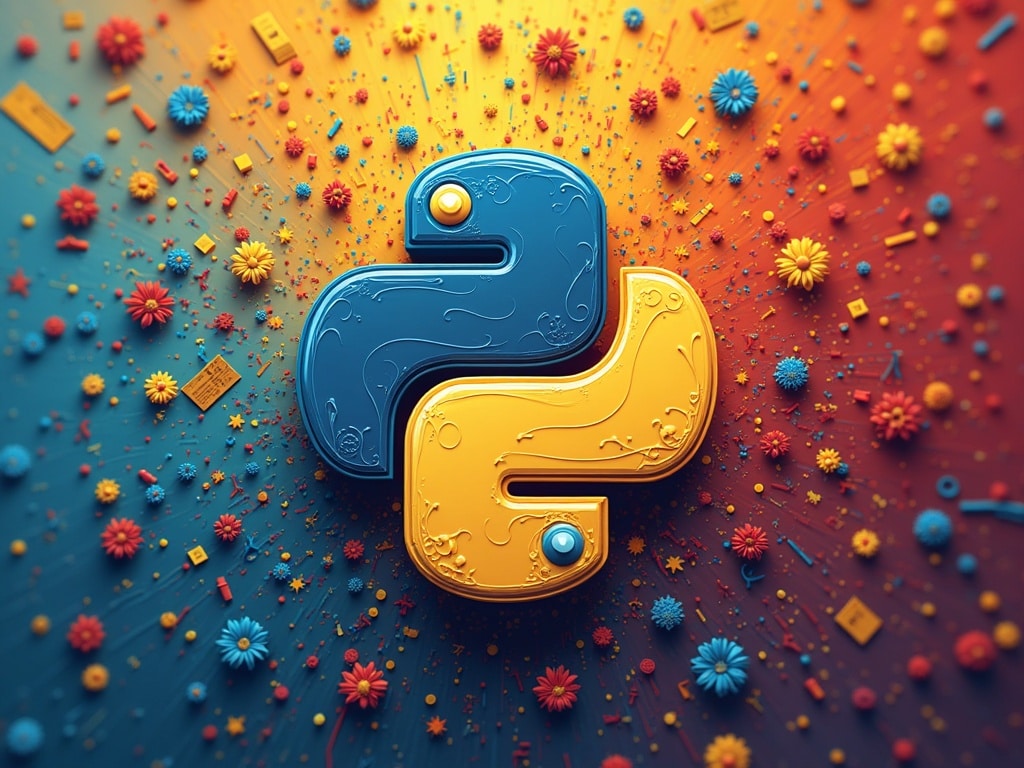Practical Python Project Examples to Level Up Your Skills
So, you’ve mastered the basics of Python. You understand loops, functions, and maybe even dabbled in classes. But now what? Reading tutorials and watching videos can only take you so far. The real magic happens when you start building your own projects. That’s where the knowledge solidifies, the problem-solving skills sharpen, and the true potential of Python unfolds. This article isn’t just a list of project ideas; it’s a guide to transformative learning experiences, filled with practical Python project examples to boost your capabilities, one line of code at a time.
Why Practical Projects are the Key to Python Mastery
Think of learning Python like learning a musical instrument. You can read about scales and chords all day, but until you pick up the instrument and start playing, you won’t truly understand the music. Practical projects are your Python instrument. They force you to apply what you’ve learned, confront real-world challenges, and discover creative solutions. Here’s why they’re so crucial:
- Reinforcement of Concepts: Applying theoretical knowledge in a practical setting solidifies your understanding. You’ll see how different concepts work together in a tangible way.
- Problem-Solving Skills: Projects present unexpected challenges. Debugging, optimizing, and finding creative solutions are essential skills you’ll hone through experience.
- Portfolio Building: A collection of well-executed projects demonstrates your abilities to potential employers or collaborators.
- Increased Confidence: Successfully completing a project, no matter how small, gives you a sense of accomplishment and motivates you to tackle more complex challenges.
- Deeper Understanding: You’ll learn about libraries, frameworks, and tools that you might not encounter in basic tutorials.
Beginner-Friendly Python Project Ideas
Starting with manageable projects is essential, especially when you’re new to Python. These projects focus on fundamental concepts and are designed to build your confidence.
1. Number Guessing Game
This classic project utilizes random number generation and user input. The program selects a random number, and the user has to guess it within a limited number of attempts. It reinforces:
- Random number generation (
randommodule) - User input (
input()function) - Conditional statements (
if,elif,else) - Loops (
whileloop)
Example Code Snippet:
import random
def number_guessing_game():
number = random.randint(1, 100)
guesses_left = 10
print(Welcome to the Number Guessing Game!)
print(I'm thinking of a number between 1 and 100.)
while guesses_left > 0:
try:
guess = int(input(fYou have {guesses_left} guesses left. Take a guess: ))
except ValueError:
print(Invalid input. Please enter a number.)
continue
if guess < number:
print(Too low!)
elif guess > number:
print(Too high!)
else:
print(fCongratulations! You guessed the number {number} in {10 - guesses_left + 1} guesses.)
return
guesses_left -= 1
print(fYou ran out of guesses. The number was {number}.)
if __name__ == __main__:
number_guessing_game()
2. Simple Calculator
Build a basic calculator that performs addition, subtraction, multiplication, and division. This project focuses on:
- User input
- Arithmetic operations
- Conditional statements
- Function definitions
Enhancements: Add features like exponentiation, square root, or handling invalid input (e.g., dividing by zero).
3. Mad Libs Generator
Create a program that asks the user to input different types of words (nouns, adjectives, verbs) and then inserts those words into a pre-written story template. This fun project covers:
- String manipulation
- User input
- String formatting
4. Rock, Paper, Scissors Game
Implement the classic Rock, Paper, Scissors game against the computer. This project is great for practicing:
- Random number generation
- User input
- Conditional statements
5. Basic To-Do List
Develop a command-line to-do list application. This project introduces you to:
- List manipulation
- User input
- Loops
You can expand this project by adding features like saving the to-do list to a file or prioritizing tasks.
Intermediate Python Project Examples
Once you’re comfortable with the basics, you can move on to more challenging projects that involve working with external libraries and more complex logic.
1. Web Scraper
Build a web scraper that extracts specific data from a website. This project introduces you to:
- The
requestslibrary for fetching web pages - The
Beautiful Souplibrary for parsing HTML - Data extraction techniques
Ethical Considerations: Always respect a website’s robots.txt file and avoid overloading their servers with excessive requests.
2. Simple Blog Engine
Create a basic blog engine that allows users to create, read, update, and delete blog posts. This project involves:
- File I/O (reading and writing files)
- String manipulation
- Basic data structures (dictionaries or lists)
- Command-line interface or a simple web interface using a framework like Flask or Django (more advanced)
3. File Organizer
Develop a script that automatically organizes files in a directory based on their file type. This project introduces you to:
- File system navigation (
osmodule) - File type detection
- Directory creation and manipulation
Example: The script could move all .jpg files to an Images folder, .pdf files to a Documents folder, and so on.
4. Password Generator
Create a strong password generator that allows the user to specify the length and complexity of the password. This project utilizes:
- Random number generation
- String manipulation
- Character sets (uppercase, lowercase, digits, symbols)

5. Currency Converter
Build a currency converter that fetches exchange rates from an API and converts amounts between different currencies. This project involves:
- Working with APIs (e.g., using the
requestslibrary to fetch data from an API) - JSON parsing (decoding JSON data)
- Basic mathematics
Advanced Python Project Ideas
These projects are for experienced Python developers who want to challenge themselves and build impressive applications.
1. Machine Learning Model
Train a machine learning model to solve a specific problem, such as image classification, sentiment analysis, or spam detection. This project requires:
- Understanding of machine learning concepts
- Experience with libraries like
scikit-learn,TensorFlow, orPyTorch - Data preprocessing and feature engineering
- Model evaluation and tuning
2. REST API
Develop a REST API using a framework like Flask or Django REST framework. This project involves:
- Understanding of RESTful principles
- Defining API endpoints
- Handling HTTP requests (GET, POST, PUT, DELETE)
- Data serialization (JSON)
- Database integration (optional)
3. Chatbot
Build a chatbot that can interact with users and provide information or automate tasks. This project requires:
- Natural language processing (NLP) techniques
- Dialog management
- API integration (optional, for example, connecting to weather or news APIs)
4. Data Visualization Dashboard
Create a data visualization dashboard that displays data in an interactive and informative way. This project utilizes:
- Data analysis libraries like
pandasandNumPy - Data visualization libraries like
matplotlib,seaborn, orplotly - Dashboarding frameworks like
DashorStreamlit
5. Game Development (Pygame)
Develop a 2D game using the Pygame library. This project involves:
- Game design principles
- Event handling
- Graphics and animation
- Collision detection
Tips for Success in Your Python Projects
Embarking on these projects requires planning, discipline, and a willingness to learn. Here are some tips to guide you:
- Start Small: Don’t try to build a full-fledged application from the start. Break down the project into smaller, manageable tasks.
- Plan Your Project: Outline the features, functionalities, and steps involved before you start coding.
- Use Version Control: Use Git for version control and track your progress. Services like GitHub or GitLab are great for hosting your repositories.
- Write Clean Code: Follow PEP 8 style guidelines for Python code. This improves readability and maintainability.
- Test Your Code: Write unit tests to ensure your code works as expected.
- Document Your Code: Add comments to explain your code and its logic. This will help you and others understand your code later on.
- Seek Help When Needed: Don’t be afraid to ask for help on forums like Stack Overflow or Reddit.
- Stay Persistent: You’ll encounter challenges along the way. Don’t give up! Keep learning and experimenting.
The Journey to Python Expertise
These practical Python project examples are not just about building applications; they’re about building your skills, expanding your knowledge, and transforming yourself into a proficient Python developer. Embrace the challenges, celebrate the victories, and enjoy the journey of learning and creating. The possibilities with Python are endless, and the more you practice, the more you’ll discover. So, pick a project, start coding, and unlock your Python potential.
